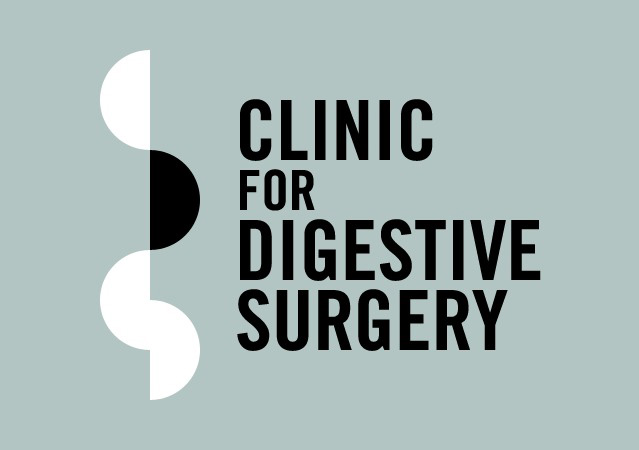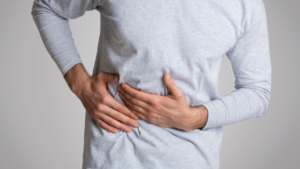Heartburn, another name for acid reflux, is a typical digestive discomfort that is defined by a burning feeling in the chest, usually after eating or while you’re sleeping. Although recurrent episodes of acid reflux are usually benign, they may be a sign of a more serious disorder called gastroesophageal reflux disease (GERD). Frequent reflux of stomach acid into the oesophagus, causing discomfort and irritation, is known as gastric reflux disease (GERD). Effective management and treatment of acid reflux require knowledge of the possible reasons as well as knowing when to consult a doctor.
What Does Acid Reflux Look Like?
Symptoms of acid reflux usually include the following:
- Burning Sensation in the Chest – The most typical symptom is a burning sensation in the chest that may extend upward toward the throat from the lower chest.
- Regurgitation – This discomfort is caused by an acid that tastes sour or bitter that flows back into the mouth.
- Chest Discomfort – Chest discomfort is a common symptom that some people mistake for a heart ailment.
- Difficulty Swallowing – Having trouble swallowing or feeling like food is trapped in your throat might be caused by persistent acid reflux.
- Sore Throat or Hoarseness – Acid reflux can cause irritation to the throat, which can result in sore throats or voice abnormalities.
- Chronic Cough – Acid reflux may be linked to a persistent cough, particularly at night or after eating.
Common Digestive Conditions Causing Acid Reflux
Gastritis reflux disease (GERD) is the main digestive disorder linked to acid reflux:
- GERD, or gastroesophageal reflux disease – The lower oesophagal sphincter (LES), a ring of muscle at the base of the oesophagus, weakens or relaxes abnormally in patients with GERD, a chronic illness. This makes it possible for stomach acid to reflux and irritate and inflame the oesophagus. If left untreated, GERD can eventually result in issues including strictures, which restrict the oesophagus, oesophagitis, or Barrett’s oesophagus, which raises the risk of oesophagal cancer.
Other Causes of Acid Reflux
Though GERD is the most frequent cause, acid reflux can also result from the following additional factors:
- Nutritional Decisions – By relaxing the LES or producing more stomach acid, a few foods and drinks, like chocolate, citrus, alcohol, caffeine, and spicy meals, can cause acid reflux.
- Obesity – Increase in abdominal obesity can put pressure on the stomach and cause acid to flow into the oesophagus.
- Hiatal Hernia – Acid reflux can result from a hiatal hernia, a condition in which a portion of the stomach rises up through the diaphragm and weakens the LES.
- Pregnancy – Expectant moms may experience acid reflux due to changes in hormones during pregnancy and the pressure of the developing foetus.
- Smoking – Smoking increases the risk of acid reflux by weakening the LES and oesophagal function.
When to Seek Medical Advice
Changes in lifestyle and over-the-counter drugs can help treat acid reflux, but it’s crucial to consult a doctor if:
- Severe or Recurrent Symptoms – It is necessary to have your acid reflux evaluated by a doctor if it occurs more frequently than twice a week or if the symptoms are severe.
- Difficulty Swallowing – You should see a doctor if you have problems swallowing or feel as though food is becoming trapped in your throat.
- Unexplained Weight Loss – Acid reflux and significant or unexplained weight loss may point to a more serious ailment.
- Chronic Nausea or Vomiting – If you experience chronic nausea or vomiting, you may have GERD or another underlying condition that requires medical attention.
How to Diagnose Acid Reflux
A combination of the patient’s medical history, physical examination, and diagnostic testing is usually used to diagnose GERD and acid reflux:
- Medical History and Physical Examination – Your doctor will inquire about your dietary preferences, way of life, and symptoms. A physical examination could be performed to check for any indications of problems.
- Endoscopy – During an upper endoscopy, a physician might check for inflammation, ulcers, or other abnormalities in the upper portion of the small intestine, stomach, and oesophagus.
- Esophageal pH Monitoring – This test determines whether GERD is present by measuring the amount of acid in the oesophagus over a 24-hour period.
- Esophageal Manometry – This test gauges the regular contractions of the oesophagal muscles while swallowing, which aids in assessing the LES’s overall function.
Treatment for Acid Reflux
The frequency and intensity of acid reflux symptoms determine how to treat the condition:
- Changes in Lifestyle – You can greatly lessen acid reflux by making dietary and lifestyle adjustments. This entails staying away from trigger foods, eating smaller meals, delaying going to bed after eating, and raising the head of the mattress.
- Medication – H2 blockers and proton pump inhibitors (PPIs) lower the formation of acid in the stomach, while over-the-counter antacids can neutralise stomach acid. Medication on prescription can be required in more serious situations.
- Surgery – To strengthen the LES and stop acid reflux, fundoplication may be advised in some rare circumstances where lifestyle modifications and medicines are ineffective.
Book a Call
We at the Clinic for Digestive Surgery are specialists at identifying and managing diseases that might lead to GERD and acid reflux. Our skilled team of professionals is dedicated to provide individualised care, including diagnosis, treatment, and aftercare. Make an appointment with us right away if you’re experiencing acid reflux so you can receive the support and treatment you require.














